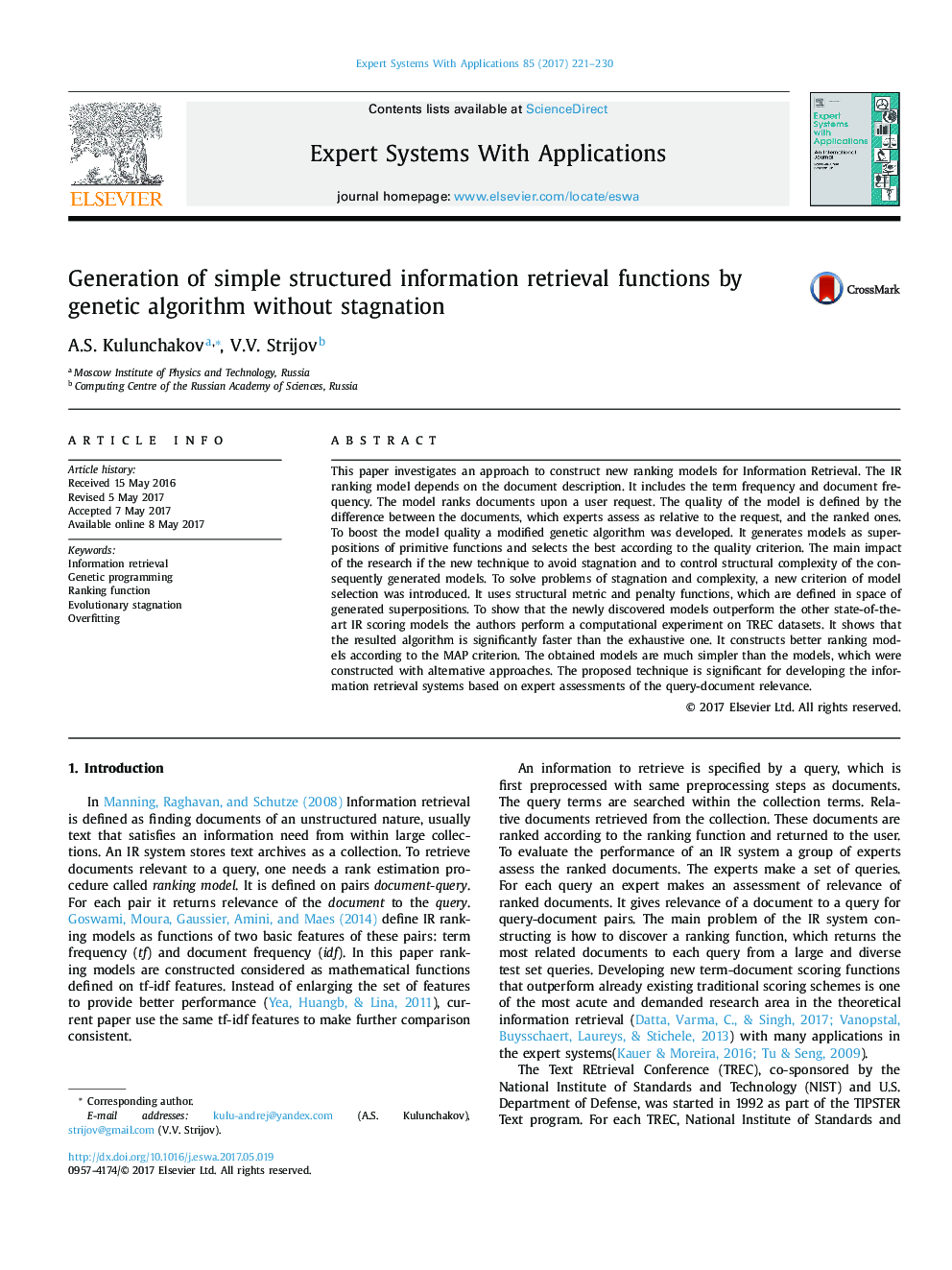| Article ID | Journal | Published Year | Pages | File Type |
|---|---|---|---|---|
| 4943151 | Expert Systems with Applications | 2017 | 10 Pages |
Abstract
This paper investigates an approach to construct new ranking models for Information Retrieval. The IR ranking model depends on the document description. It includes the term frequency and document frequency. The model ranks documents upon a user request. The quality of the model is defined by the difference between the documents, which experts assess as relative to the request, and the ranked ones. To boost the model quality a modified genetic algorithm was developed. It generates models as superpositions of primitive functions and selects the best according to the quality criterion. The main impact of the research if the new technique to avoid stagnation and to control structural complexity of the consequently generated models. To solve problems of stagnation and complexity, a new criterion of model selection was introduced. It uses structural metric and penalty functions, which are defined in space of generated superpositions. To show that the newly discovered models outperform the other state-of-the-art IR scoring models the authors perform a computational experiment on TREC datasets. It shows that the resulted algorithm is significantly faster than the exhaustive one. It constructs better ranking models according to the MAP criterion. The obtained models are much simpler than the models, which were constructed with alternative approaches. The proposed technique is significant for developing the information retrieval systems based on expert assessments of the query-document relevance.
Related Topics
Physical Sciences and Engineering
Computer Science
Artificial Intelligence
Authors
A.S. Kulunchakov, V.V. Strijov,
